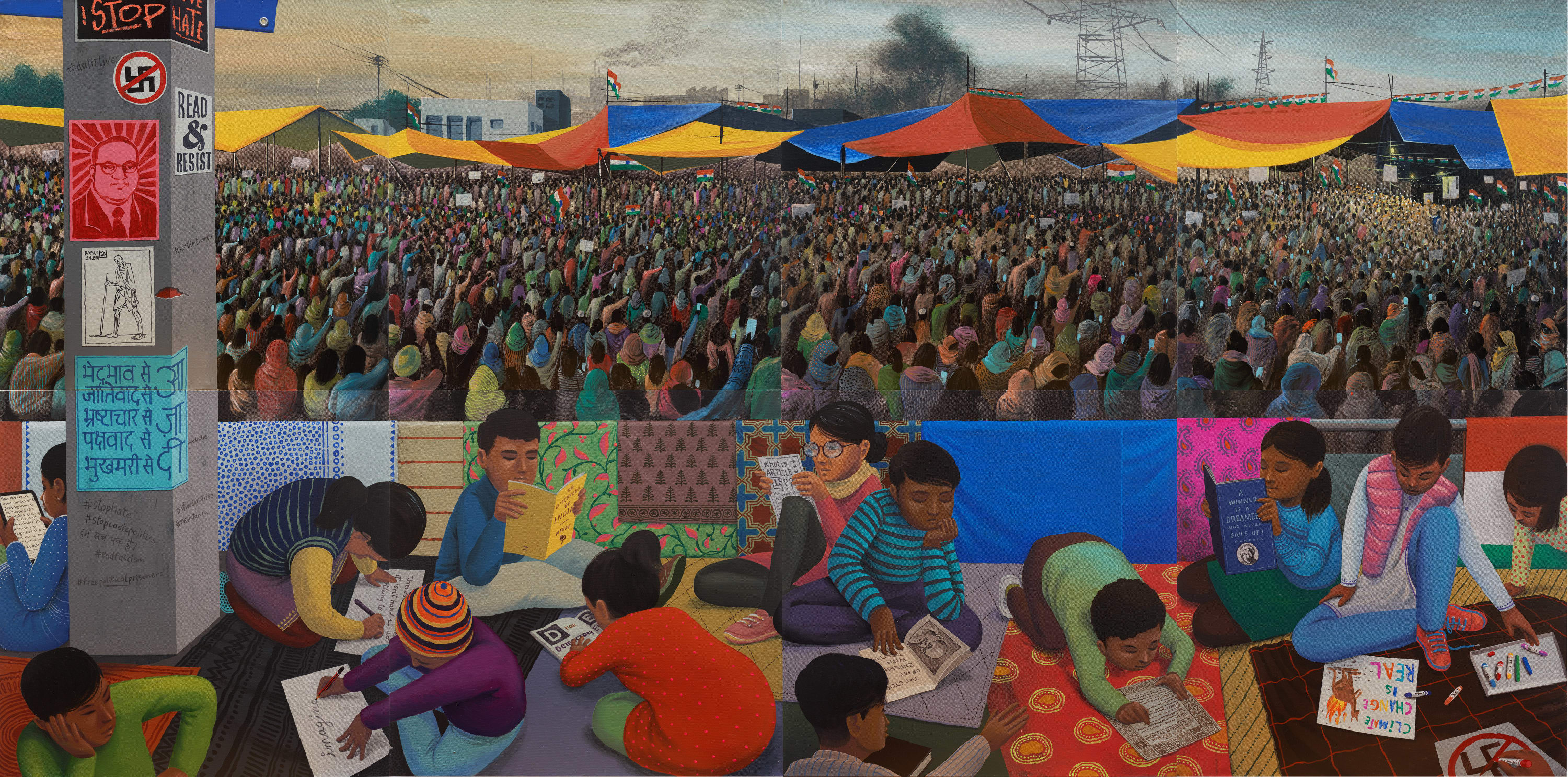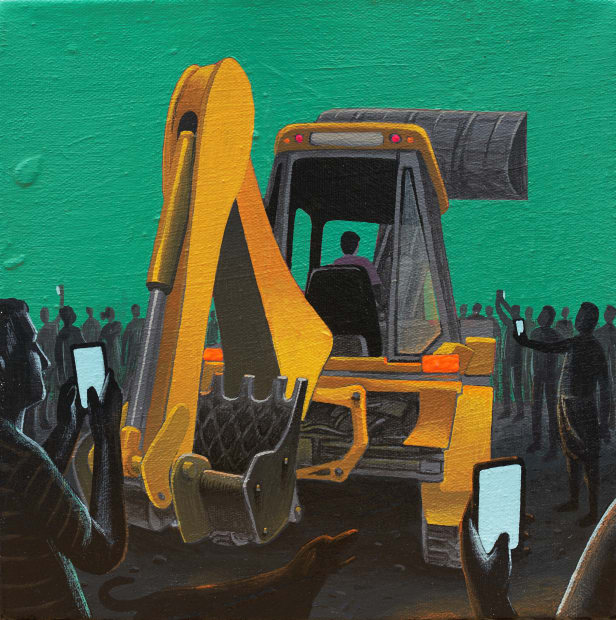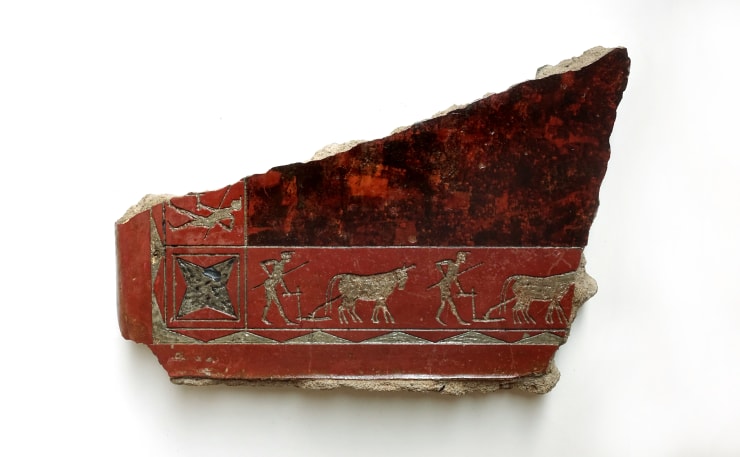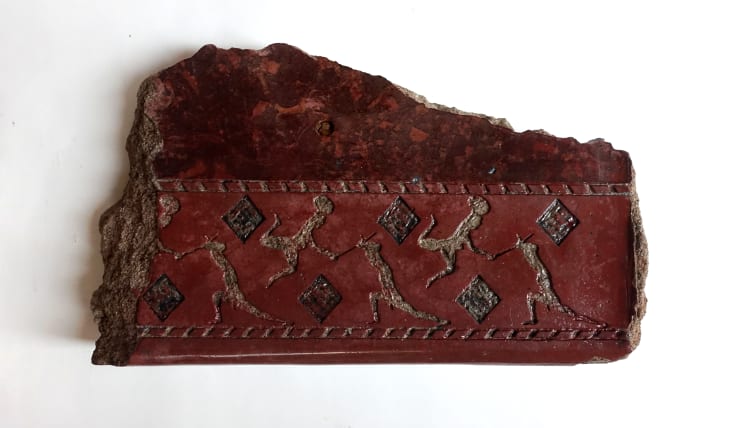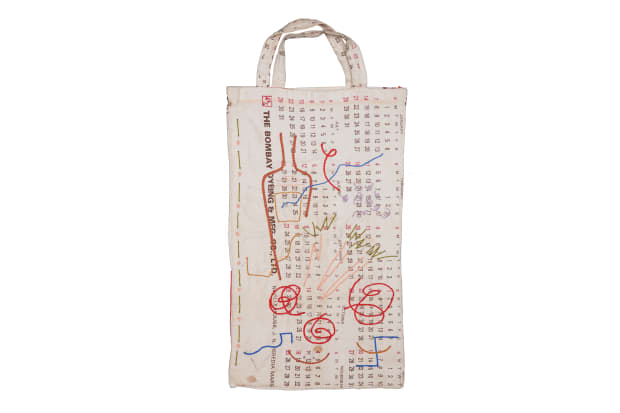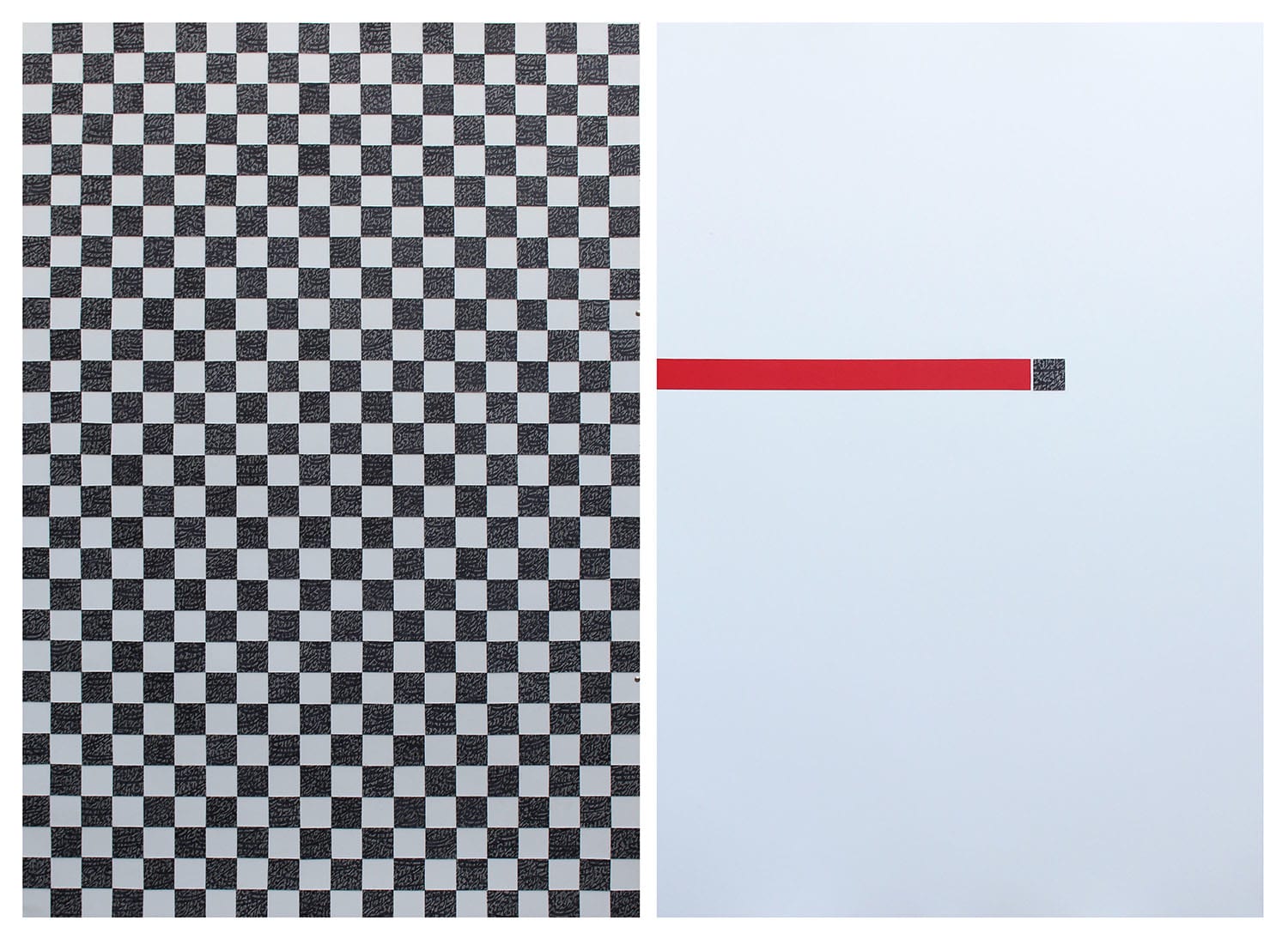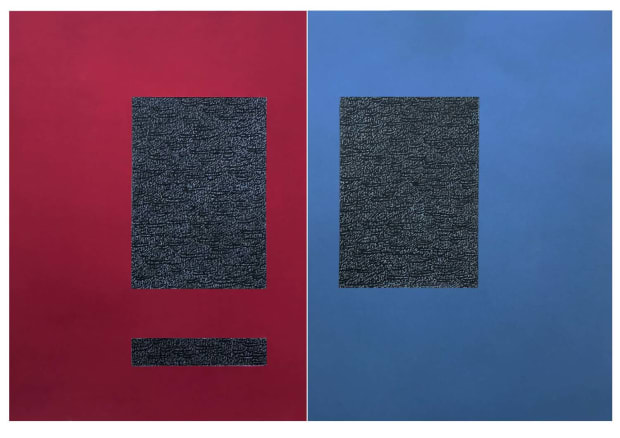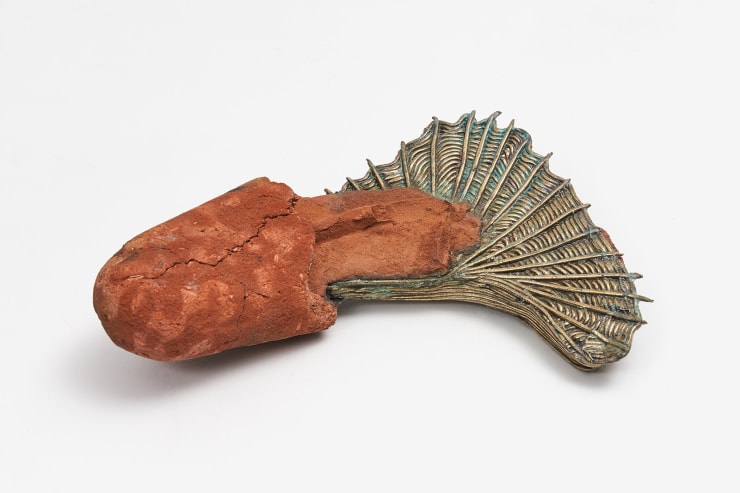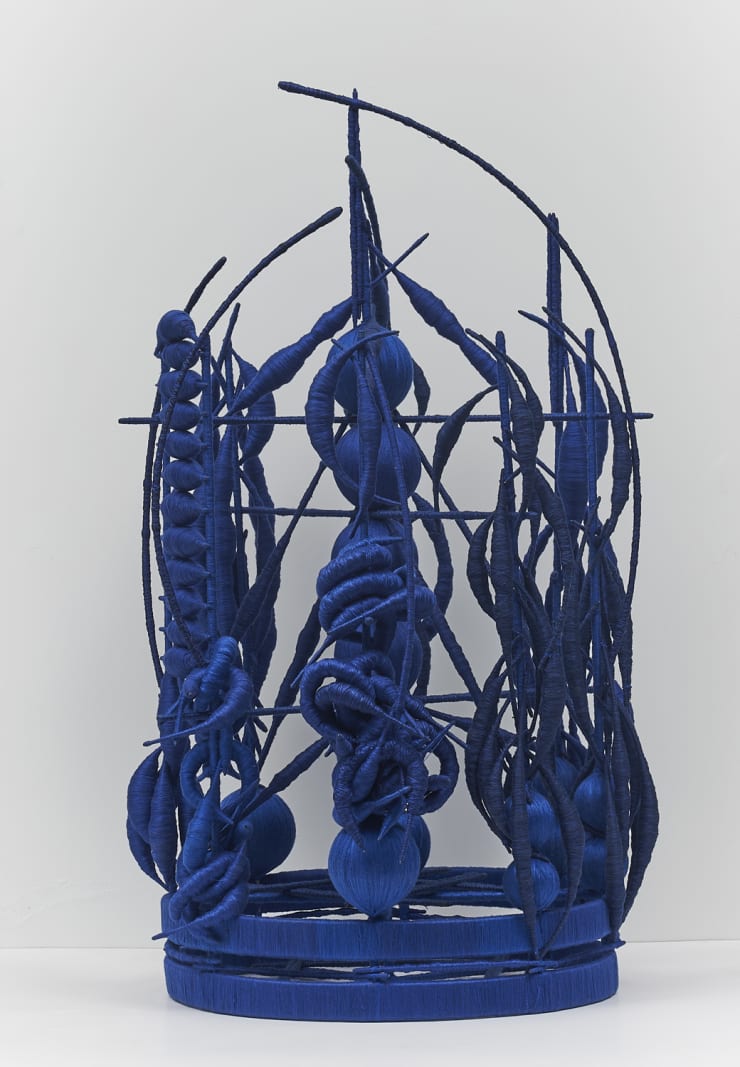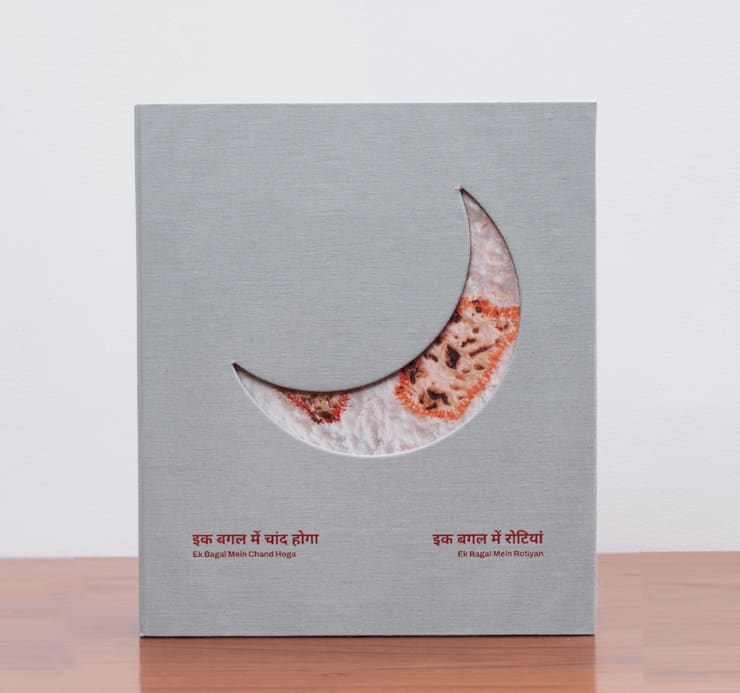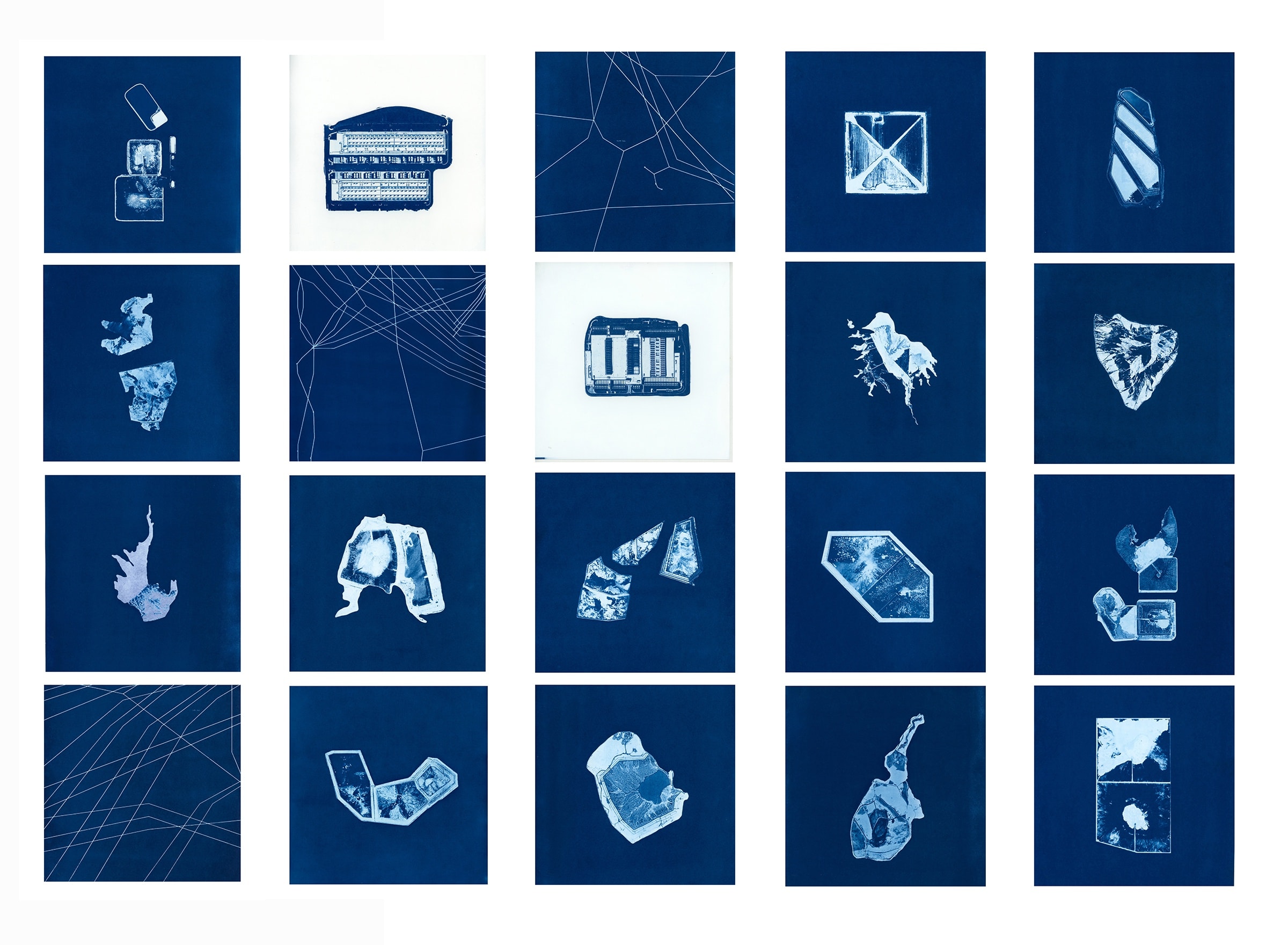-

-
TARQ is delighted to present Event, Memory, Metaphor, curated by Anish Gawande, opening on July 14th2022 for Art Night Thursday. Inspired by Kashmiri poet Agha Shahid Ali’s poem “Farewell,” the show explores the intricate intertwining of memory and history to ask fundamental questions about how — and why — we access the past through artworks by Areez Katki, Garima Gupta, Muzzumil Ruheel, Parag Tandel, Philippe Calia, Saju Kunhan, Sameer Kulavoor, and Saubiya Chasmawala.
Event, Memory, Metaphor critically engages with the archival turn in contemporary art. Some of the artists in the show engage with the archive as a space of restitution and reconfiguration while others approach the archive as a site of contestation and fabulation, both grappling with increasingly blurred lines between fact and fiction. Yet others interrogate the urge to bear witness and, in a world transformed by technology, the increasing precarity of the permanence of bearing witness.
This show, borrowing its title from historian Shahid Amin’s seminal work on the politics of official memory around Chauri Chaura, bring together pertinent ongoing debates around the allure of the archive and the desire to turn to the past. Building upon Amin’s idea of the “recalcitrant event,” which in its impossibility of linear narration challenges the diktats of official narratives, the accompanying text by curator Anish Gawande probes the politics of the archive and its construction. -

-
Garima Gupta’s lightboxes explore the archive as a space of restitution of agency, a fighting back against structures of power. This carefully constructed catalogue of mineral samples from the collection of the Peabody Museum of Natural History at Yale Universityhas yielded a body of work that investigates colonialism against the backdrop of labour, migration and excavation. The works explore the geological information previously guarded by imperially funded organisations and are a step towards de-colonising knowledge.
-

-

-
For artists like Saubiya Chasmawala, the archive holds not only a restitutive but also a reconfigurative potential. Navigating her own position between the sacred and the profane, Chasmawala’s ink on paper works turn to Arabic script to reconstitute - physically and metaphorically - her relationship to sacrality. They are born out of a desire to demystify, to unveil, and are the results of an intuitive, introspective, almost meditative mark making process.
-

-

-
Parag Tandel, in a move resembling the approaches of several indigenous critical theorists towards the truth claims of the archive, rejects the idea of the archive as a repository of fact. He turns to the archive as as a space for fabulation and creative interpretation. His work explores the changing seascape of Mumbai, an environment that is essential to him as an artist as well as as a member of the Koli community, one of Mumbai’s original communities. Through a set of fantastical sculptures, Tandel seeks recourse in the past to help navigate an increasingly uncertain future.
Click here to view Parag Tandel's supporting video. -

-
Finally, Philippe Calia explores the materiality of the archive, highlighting its precarity and extractive nature. Through Cloud Atlas, a set of cyanotypes that map the vast geographical breadth of the physical infrastructure that is essential to the production, storage and circulation of information today, Calia shows how maintaining records of our present depends upon an increasingly unsteady ravaging of rare minerals and other natural resources.
-
This show, borrowing its title from historian Shahid Amin’s seminal work on the politics of official memory around Chauri Chaura, bring together pertinent ongoing debates around the allure of the archive and the desire to turn to the past. Building upon Amin’s idea of the “recalcitrant event,” which in its impossibility of linear narration challenges the diktatsof official narratives, the accompanying essay by curator Anish Gawande probes the politics of the archive and its construction.
Gawande places critical theorist Anjali Arondekar’s incisive insights, drawing upon her work on sexuality and the colonial archive, into the recuperative hermeneutics that undergird the archival project in conversation with the works on display to interrogate the dangers of a turn to the past. Seeing literary theorist Saidiya Hartman’s work on critical fabulation, which is a product of her research on the impossibility of recovering archives of blackness that were deliberately erased under slavery, he questions alternative configurations and imaginations of the archive.
-
About the Curator
Anish Gawande is a writer and translator. He currently serves as the Director of the Dara Shikoh Fellowship and the Curator of Pink List India.
Anish graduated from Columbia University with a degree in comparative literature before pursuing a degree in intellectual history at the University of Oxford as a Rhodes Scholar. His work examines the contested terrains of language, sexuality, and history in South Asia and Francophone West Africa.
He translates from Marathi to English, and his most recent translation has appeared in The World That Belongs to Us (HarperCollins 2020). His debut curatorial endeavour, Katarvel, opened at Sakshi Gallery in Mumbai in February 2020. Anish currently lives in Oxford, and can most often be found curled up in a library with a cup of chai.
Event, Memory, Metaphor: Curated by Anish Gawande
Current viewing_room
